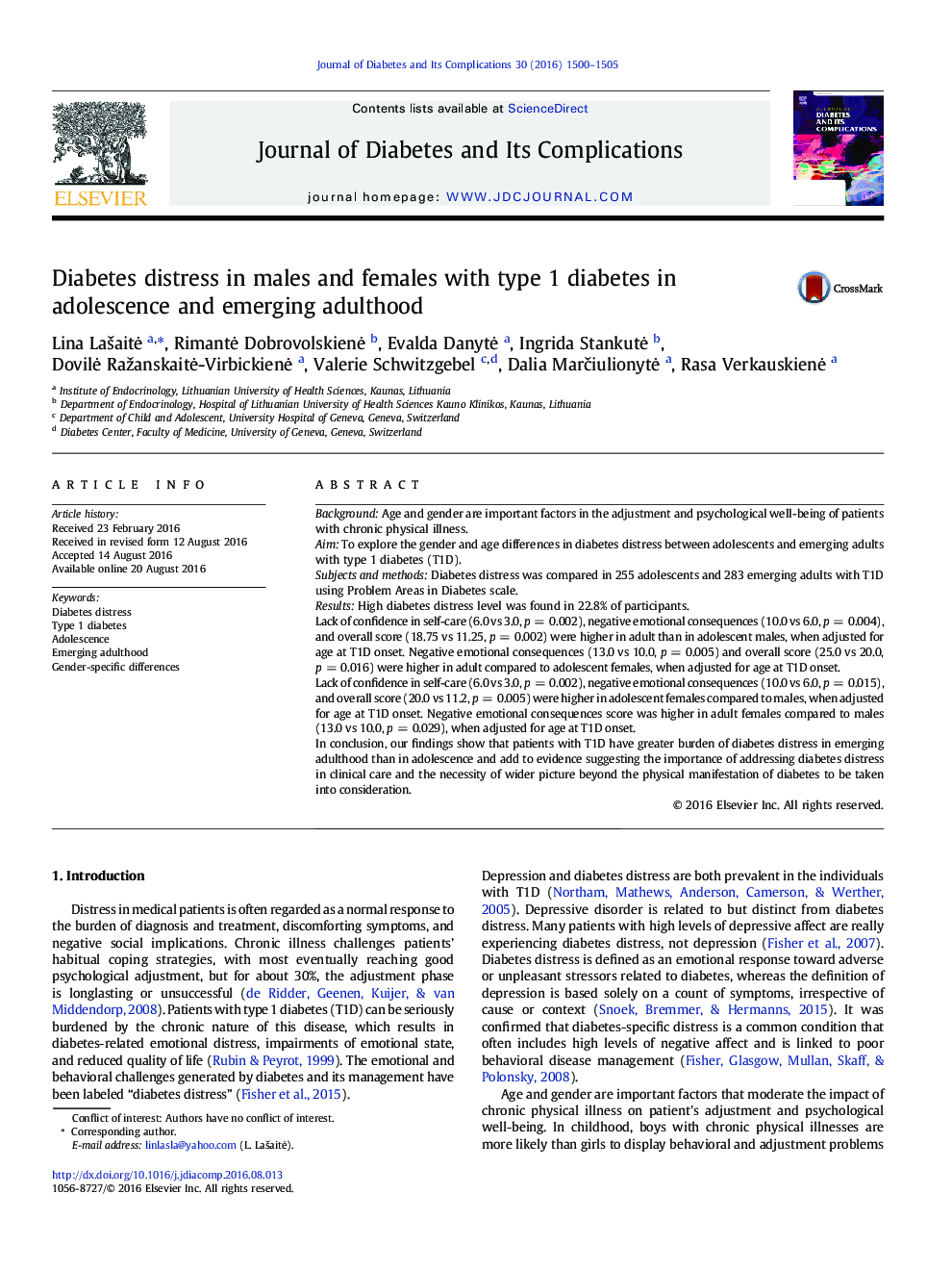| Article ID | Journal | Published Year | Pages | File Type |
|---|---|---|---|---|
| 5901876 | Journal of Diabetes and its Complications | 2016 | 6 Pages |
BackgroundAge and gender are important factors in the adjustment and psychological well-being of patients with chronic physical illness.AimTo explore the gender and age differences in diabetes distress between adolescents and emerging adults with type 1 diabetes (T1D).Subjects and methodsDiabetes distress was compared in 255 adolescents and 283 emerging adults with T1D using Problem Areas in Diabetes scale.ResultsHigh diabetes distress level was found in 22.8% of participants.Lack of confidence in self-care (6.0 vs 3.0, p = 0.002), negative emotional consequences (10.0 vs 6.0, p = 0.004), and overall score (18.75 vs 11.25, p = 0.002) were higher in adult than in adolescent males, when adjusted for age at T1D onset. Negative emotional consequences (13.0 vs 10.0, p = 0.005) and overall score (25.0 vs 20.0, p = 0.016) were higher in adult compared to adolescent females, when adjusted for age at T1D onset.Lack of confidence in self-care (6.0 vs 3.0, p = 0.002), negative emotional consequences (10.0 vs 6.0, p = 0.015), and overall score (20.0 vs 11.2, p = 0.005) were higher in adolescent females compared to males, when adjusted for age at T1D onset. Negative emotional consequences score was higher in adult females compared to males (13.0 vs 10.0, p = 0.029), when adjusted for age at T1D onset.In conclusion, our findings show that patients with T1D have greater burden of diabetes distress in emerging adulthood than in adolescence and add to evidence suggesting the importance of addressing diabetes distress in clinical care and the necessity of wider picture beyond the physical manifestation of diabetes to be taken into consideration.
